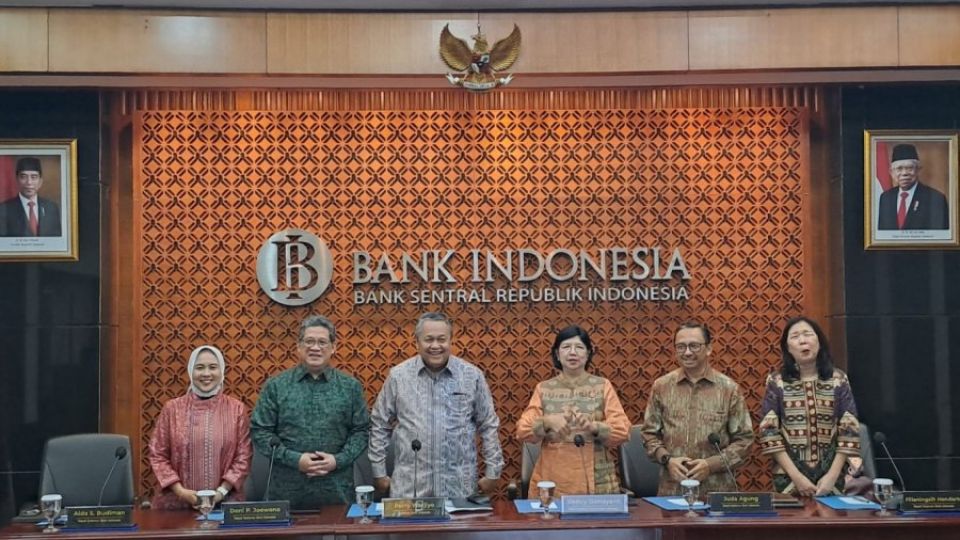March 22, 2024
JAKARTA – Bank Indonesia (BI) has kept its benchmark interest rate unchanged at 6 percent after weighing macroeconomic conditions and prospects, including its projection of monetary policy by the United States Federal Reserve.
Following the central bank’s two-day monthly monetary policy meeting, BI Governor Perry Warjiyo announced to the press that BI had maintained its forecast for the Fed to loosen the reins only in the second half of the year.
“We still see that [the federal funds rate (FFR) cut] will take place in the second half. Our assessment is based on the fundamentals. Inflation in America is still above target and likely to remain above target throughout 2025,” Perry said on Wednesday.
US interest rates are important for Indonesia because any change in the cost of funds in the world’s largest economy by GDP will impact capital flows and demand for emerging market currencies and assets.
Perry said economic growth in the US remained solid, which led BI to believe that the Fed would be “patient” about cutting, hence the forecast. In last month’s briefing, Perry had stated that BI estimated the FFR would be cut by a total of 75 basis points (bps) this year.
Perry acknowledged that some market participants had recently speculated on a cut taking place as early as June, and in past briefings he had also acknowledged market speculation that did not pan out.
Such speculation, Perry explained on Wednesday, constituted uncertainty: “It will go up and down. […] That’s one of the reasons why our BI policy rate remains at 6 percent.”
He went on to say that BI’s baseline scenario only foresaw a BI rate cut in the second half but added, “It may come sooner, or later.”
The central bank chief noted that inflation was the main factor driving its rate decisions.
Indonesia has seen a typical seasonal spike in volatile food inflation in the run-up to Ramadan, but the central bank did not revise its forecast for full-year consumer price index (CPI) growth of around 3 percent.
Perry said a recent strengthening of the dollar against the rupiah had also been taken into account for the rate decision.
Private lender Bank Danamon economist Irman Faiz wrote in an analysis on Wednesday that the dollar appreciation was the result of several factors and market uncertainty.
On top of that, stubborn global inflation, elevated by rising shipping costs because of tensions in the Middle East, contributed to a strong greenback.
“Going forward, BI will continue prioritizing rupiah stabilization. The rising trend of US treasury yields, along with uncertainty regarding the Fed’s policy direction, will [still pose] challenges for BI to adjust its policy rate in the near future,” wrote Irman, before adding that he expected BI to cut its rate by 50 bps this year.
The chief economist of state-owned lender Bank Mandiri, Andry “Asmo” Asmoro, wrote in a separate analysis that BI would keep the rate at the current level before cutting it “for the first time at the beginning of [the] second half [of] this year”.
Asmo added that major factors informing the cut would be a “bold signal of [a] first FFR cut” and “manageable domestic inflation” amid rising pressure from food prices.
“At this juncture, we expect the BI rate will be cut to 5.5 percent this year,” reads Asmo’s statement released on Wednesday.


